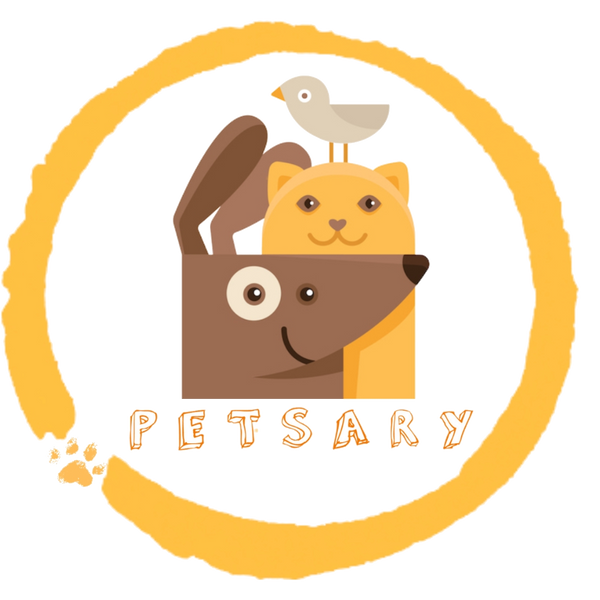Dogs love sharing our meals, but not everything on our plates is safe for them. Some human foods are toxic to dogs, even in small amounts. Understanding what foods to avoid can keep your furry friend safe and healthy. This guide breaks down some common foods that should never be fed to your dog and explains why.

Why Your Dog’s Diet Matters
A dog's diet isn't just about keeping them full—it's about maintaining their health and well-being. Just like humans, dogs need a balanced diet. However, their digestive systems work differently, making certain human foods dangerous or even deadly to them. Giving your dog the wrong food can lead to anything from mild discomfort to severe illness.
Dangerous Foods for Dogs
Some substances that are perfectly safe for us can cause serious harm to our canine companions. That’s why it’s essential to stick to dog-friendly foods. Let’s explore the most dangerous foods you should avoid giving your dog.Some of these might surprise you!
- 1. Chocolate: A Sweet Danger
- How Chocolate Affects Dogs
- Symptoms of Chocolate Poisoning
If your dog has eaten chocolate, they might show symptoms like vomiting, diarrhoea, increased heart rate, or even seizures. Seek immediate veterinary care if you suspect chocolate poisoning.
2. Grapes and Raisins: Tiny but Toxic
These seemingly harmless fruits are extremely toxic to dogs. Just a small amount can lead to severe kidney failure.

- The Hidden Risks of Grapes and Raisins
- What to Do if Your Dog Eats Grapes
If your dog consumes grapes or raisins, contact your vet immediately. Symptoms may not appear right away but can include vomiting, lethargy, and decreased appetite.
3. Onions and Garlic: A Pungent Problem
Onions, garlic, and other members of the allium family are highly toxic to dogs. They can cause damage to red blood cells, leading to anemia.
- Why Alliums are Harmful to Dogs
The compounds in onions and garlic can lead to oxidative damage in dogs' red blood cells, causing them to burst. This can result in anemia and serious health problems.
- How Much Onion is Too Much?
Even small amounts of onion or garlic can be harmful to dogs, especially in concentrated forms like garlic powder or onion soup mixes.
4. Avocados: Not as Healthy for Dogs
Avocados may be a superfood for humans, but for dogs, they can be harmful. The skin, pit, and even the flesh contain persin, which is toxic to dogs.
The Dangers of Persin in Avocados
Persin can cause vomiting and diarrhoea in dogs. In large amounts, it can even lead to more severe symptoms like fluid accumulation in the chest.
Safe Alternatives to Avocados
If you're looking for a healthy treat for your dog, opt for fruits like blueberries or bananas, which are safe and nutritious.
5. Caffeine: No Energy Boost for Dogs
Just like chocolate, caffeine is a stimulant that dogs should avoid. Even small amounts can cause serious health issues.- The Effects of Caffeine on Dogs
Caffeine can cause rapid heart rate, hyperactivity, and even death in dogs. Be cautious with coffee, tea, and caffeinated sodas.
6. Xylitol: A Hidden Danger in Sugar-Free Foods
Xylitol is a common sweetener in sugar-free products, but it's highly toxic to dogs, causing a rapid insulin release and potential liver failure.- How Xylitol Affects Dogs
- Common Products Containing Xylitol
- Other Foods You Should Avoid
Beyond the common foods we've covered, there are other everyday items that can also pose risks to your dog’s health.
7. Alcohol: Not Just for Humans
Alcohol has the same effect on dogs as it does on humans, but it takes much less to cause harm. Even small amounts can lead to alcohol poisoning.
8. Macadamia Nuts: Small Nuts, Big Problems
These nuts may be a healthy snack for us, but they can cause weakness, vomiting, and hyperthermia in dogs.
9. Raw Dough: A Rising Threat
Unbaked dough with yeast can expand in a dog’s stomach, causing bloating and discomfort. It can also lead to alcohol production as the yeast ferments.
10. Bones: Surprising Risks
Cooked bones may seem like a natural treat, but they can splinter and cause choking or internal injuries. Stick to raw bones or vet-approved alternatives.
What to Do If Your Dog Eats Something Toxic
If your dog ingests something they shouldn’t, act quickly. Call your vet or a pet poison hotline right away. Knowing the signs of poisoning—vomiting, diarrhoea, lethargy—can make a huge difference in how fast you respond.
Conclusion: Keep Your Furry Friend Safe
Our dogs rely on us to keep them safe, including what they eat. By avoiding these harmful foods and being aware of the risks, you can ensure your dog stays healthy and happy. Remember, when in doubt, always check with your vet.

